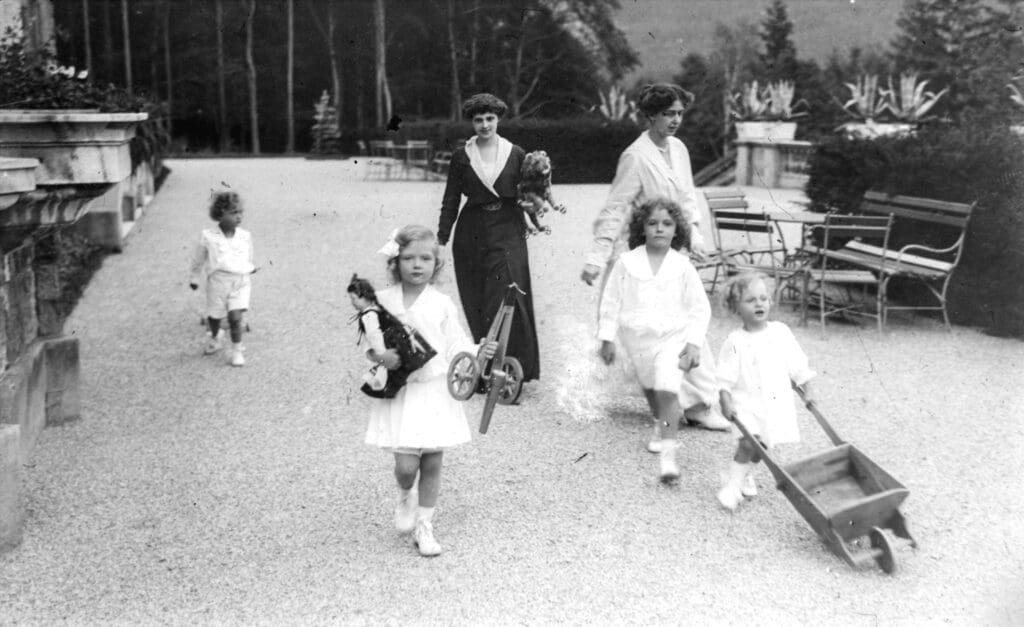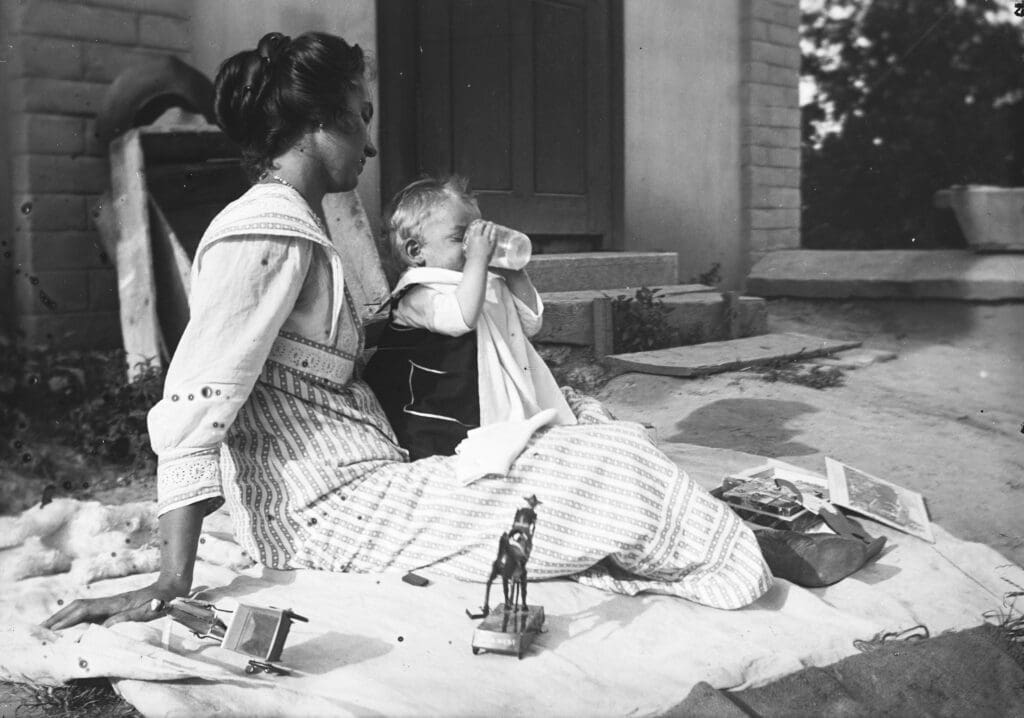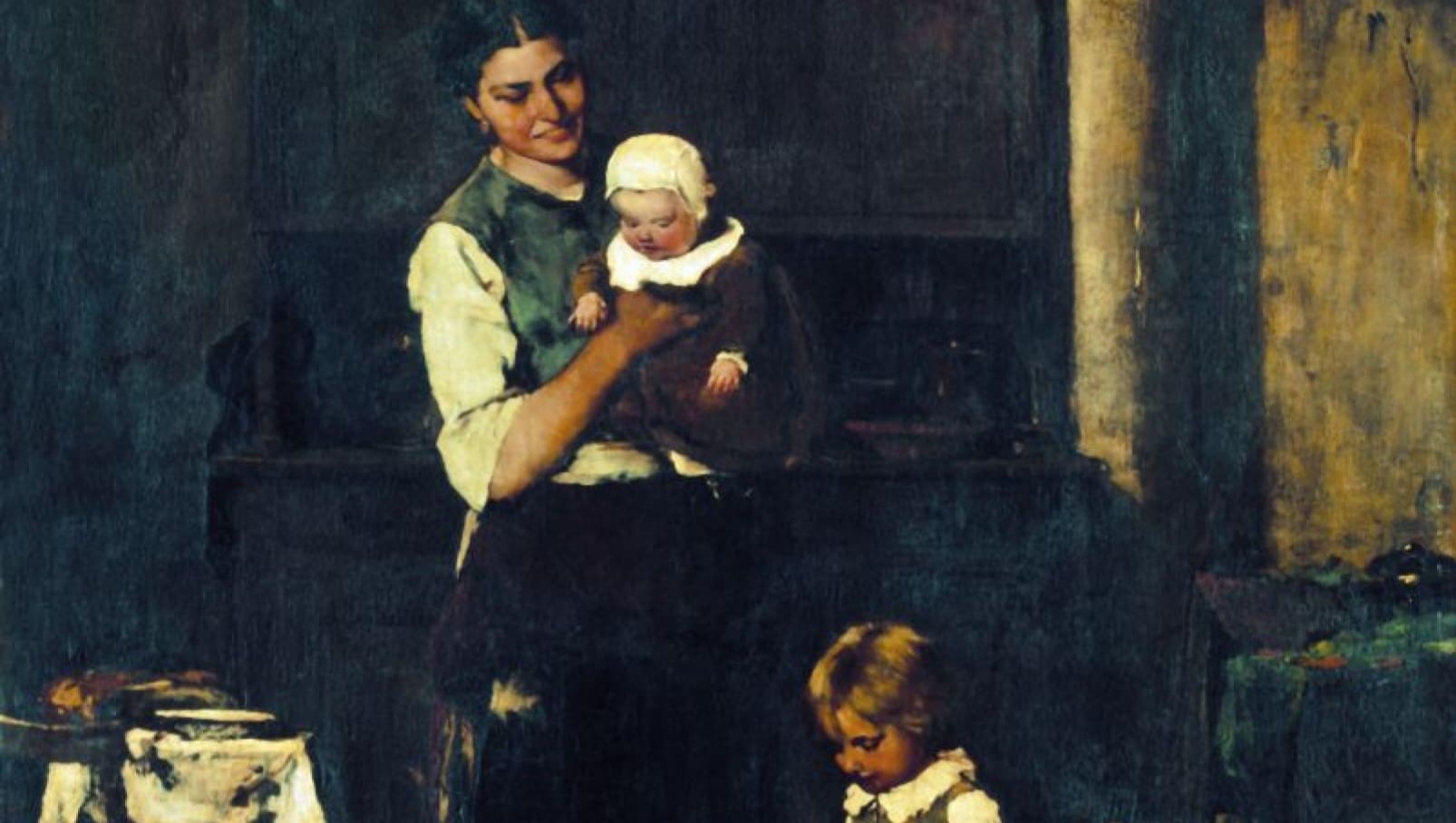This article was published in Vol. 4 No. 2 of our print edition.
In recent years, the Hungarian state has built one of the strongest family support systems in the world. In addition to creating stability for families and encouraging childbearing, this also stimulates the economy. Our family-friendly measures have a good reputation at the international level, and this model—which is truly ‘made in Hungary’—can serve as an example for other countries.
There Is No Future Without Children
Thirteen years ago, a new era began in Hungary, marking the beginning of family-friendly governance. After taking office in 2010, the second conservative government, based on the triple unity of God, homeland, and family, created a work- and family-based social system,1 as well as a political and economic system capable of strengthening it. This government takes into account the interests of families, which ensure the survival of the nation. The Orbán government, which took office in 2010, began with a difficult legacy. From getting the economy back on its feet to restoring the self-esteem of families, many tasks awaited the new leadership.
In contrast to the socialist–liberal governments, the government led by Prime Minister Viktor Orbán quickly recognized that the future of the Hungarian nation and the country’s economic performance were in danger. Due to the decline of the population since 1981 and its rapid aging, significant efforts were needed to ameliorate the negative processes. The prime minister made it clear that ‘there is no future without children’, therefore the state must use all means to support family formation and the welfare of families. At the same time, the prime minister pointed out that families are the driving force of the economy, so subsidies must be given in such a way that the economy also grows permanently. The conservative government knew that the key to development is to be found in a work- and family-based community, so it also stipulated in the law on family protection that employment and childbearing are factors that reinforce each other and serve the wellbeing of Hungarians. From then on, the conservative government regarded families as a resource, and as a pledge of the nation’s continued existence, and their support and protection became the central element of governance as well as the key to solving the demographic situation.
Milestones in Family Policy
Over the past years, the Orbán government has built a family support system that, in addition to creating stability for families and encouraging childbearing, also stimulates the economy. The Hungarian family policy, which covers the entire life course, is aimed at balancing work and family, supporting home creation, ensuring financial security for families, encouraging births, and deepening cooperation between generations, as well as providing parents raising children with the option to decide when to return to the labour market. The constantly expanding Hungarian family support system now includes more than thirty forms of family benefits, including many measures that overlap with the economic sector. In the system of family policy, the universal benefits that were introduced earlier (one-off maternity allowance, family allowance, childcare allowance, child-raising support) are still present, but the emphasis has been shifted to elements linked to work and employment (infant care fee, childcare fee)2 and tax benefits, from which all working parents raising children can benefit.
The first measure in the family-friendly turn was family taxation, introduced on 1 January 2011, which provides working parents with the opportunity to reduce their personal income tax. The amount of the discount was set at 10,000 HUF in the case of one child, 20,000 HUF in the case of two children, and 33,000 HUF per child in the case of three or more children. Since 2014, it has been possible to deduct this from the personal income tax, pension, and health insurance contributions, and from July 2020, from the labour market contribution. It is worth noting that the family tax benefit can be claimed not only after birth but also after the 91st day of pregnancy, thus indicating support for the mother and the unborn child. Another important measure in the family tax system is the tax benefit for newly married couples, which was introduced in 2015, and by 2023, a total of 376,000 married couples had already benefited from it (amounting to more than 25.3 billion HUF). In 2020, Hungary became the first country in Europe to announce a lifetime personal income tax (PIT) exemption for mothers who have four or more children, which marked another milestone in taxation. Since 2023, women who give birth or adopt children under the age of thirty, as well as young people under the age of twenty-five, are also entitled to personal income tax exemption, with which the government wants to encourage the process of leaving and re-entering the labour market. Together with the different forms of tax benefits and tax refunds, 4,700 billion HUF in tax and contribution payments were saved by families between 2011 and 2023, a significant part of which flowed into the Hungarian economy thanks to domestic consumption.3
Focus on Home Creation
In addition to the expansion of family-friendly taxation, another unique family support measure was the introduction of the Family Housing Subsidy (CSOK), which has been used by more than 240,000 families since 2015. With the introduction of CSOK and village CSOK, which entered into force in 2019, the government’s goal was to support families’ plans to create a home, encourage the willingness to have children, and boost the construction industry and the property market. Both measures have fulfilled hopes and expectations in recent years, as the construction industry boomed. Every fourth family with children was able to move into a home more suitable for them. Additionally, the number of children per family among those applying for the subsidy increased significantly.
It is no surprise that home creation appears so prominently in Hungarian family policy. A 2019 study4 by the Mária Kopp Institute for Demography and Families (KINCS) reveals that in addition to a stable relationship and a secure financial situation, the most important condition for starting and expanding a family is having one’s own home. Measures that support housing and its continuous expansion are therefore essential in enabling the birth of more and more children in Hungary. With this in mind, under the aegis of ‘CSOK Plus’, which was launched in January 2024, the government is providing even more financial aid than ever before to support the home creation of couples planning to have children. The new construction replaced the old Family Housing Subsidy scheme in cities, adapting to the new and different needs of families arising from the current economic situation. There is huge interest in the new credit scheme, as this type of support is beneficial for everyone who is married and plans to have children. The conditions are extremely favourable: according to the government’s decision, only a maximum of 3 per cent interest must be repaid during the first year after taking the loan. A one-year (optional) repayment moratorium can be applied for after the arrival of the first child and 10 million HUF are waived after the arrival of the second and each subsequent child from the outstanding debt capital.
‘This government takes into account the interests of families, which ensure the survival of the nation’
According to the estimates so far, in the case of CSOK Plus, even when compared to the best home loans on the market, less must be repaid. In the case of married couples who have several children in a short period of time, it may also happen that they end up having to repay less money than they initially received. About two thousand families applied for the new support form in the first two months.5 The average loan amount requested by families is around 25 million HUF, which shows that the average applicant plans to have more children. It is of further help that CSOK Plus can be supplemented with the expectant parent subsidy introduced in 2019, which was part of the 2019 Family Protection Action Plan, as well as the PIT exemption for mothers with four or more children, the car purchase support for large families, and the introduction of the childcare payment for grandparents.
The expectant parent subsidy6 is the favourite loan of couples planning to have a child, as it can be used for any purpose, so it can even be used to secure the down payment required for a mortgage. By applying for the expectant parent subsidy, married couples can receive up to eleven million HUF from January this year, with a maximum of 51,000 HUF to be repaid each month. What makes this construction even more attractive is connected to the number of children born during the term. If the first child arrives within five years after submitting the loan application, the instalments do not have to be paid for three years, and the loan becomes permanently interest-free for the entire term. With the arrival of the second child, repayment is suspended for another three years, and 30 percent of the debt is waived by the state. In the event of welcoming a third child, the family is exempted from repaying the entire remaining loan. So far, more than 288,000 families have applied for expectant parent subsidies.
More and More Women Are Working
It is also important that families with children do not suffer from discrimination in the labour market, so many measures help to facilitate employment and to create a balance between work and private life. Special attention is paid to the support of mothers raising small children, as not only work and family-related tasks, but also the coordination of domestic tasks is on their shoulders. As the prime minister stated in his speech at the Fifth Budapest Demographic Summit in September 2023: ‘In Hungary, women hold families together. The day-to-day performance of Hungarian mothers is fantastic. They go to work, build a career, stay ahead of the competition, keep everyone’s needs in mind, and give the world something it craves the most these days: unconditional love. This is the most important lesson of Hungarian family policy. If you want a future for your country, you have to support mothers.’7
According to the surveys of the Mária Kopp Institute, a significant part of the population believes that a woman does not have to give up her career to raise children, and that motherhood and career are compatible. At the same time, the overwhelming majority of respondents also admit that having a child influences their decision to return to work. In Hungary, women typically return to work after their youngest child is two or three years old, so in their case flexible employment is imperative. The government is therefore using legal force to encourage employers to make part-time employment available for those who are raising young children. The good news is that the employment of mothers with small children has increased significantly in recent years.8

According to data from the Central Statistical Office (KSH),9 between 2010 and 2023, the employment rate of women aged 25–49 raising children under the age of three rose from 67 per cent to 78 per cent, while that of women raising children under the age of six rose from 63 per cent to 74 per cent. All of this could not have happened without measures to help women return to the labour market, especially the development of the nursery care network and the expansion of the family support system. The two major milestones of these were the grandmother’s pension known as ‘Women 40’ (Nők 40), which can be claimed regardless of age by anyone with at least 40 years of eligibility, and the Gyed Extra, introduced in 2014. By using the old-age pension, grandmothers can play a more active role in taking care of their grandchildren, thereby helping young mothers in their daily lives and finding work. Gyed Extra creates an opportunity for mothers to return to work six months after giving birth, while still receiving a childcare allowance. The introduction of Gyed Extra has also increased the demand for nursery care places. From 2017 onwards, a new, flexible nursery care system was created. As a result, so-called mini, family, and workplace nurseries now operate in Hungary, in addition to regular nurseries. It is worth noting that in comparison to 2010, the nursery care system has undergone significant developments. The number of places has doubled from 32,000 to 65,000. Moreover, nursery care is available in more than 1,100 cities, towns, and villages, which is three and a half times the previous amount.

The Hungarian Model Is an Example
The measures introduced in the last thirteen years have also had a positive effect on the main indicators shaping the population. As a result of the government’s family-oriented policy, the number of marriages doubled in comparison to 2010, the number of divorces decreased by a quarter, and the number of abortions almost halved. If everything had remained at the level of 2011, then by 2023 there would have been 178,000 fewer children, 204,000 fewer marriages, 65,000 more divorces, and 152,000 more abortions. It is a significant improvement that the fertility rate, which indicates the desire to have children, increased from 1.23 to 1.59 over the course of a decade, from the low point in 2011. Between 2010 and 2022, among all EU countries, it was in Hungary that the fertility rate increased the most. We went from the bottom to the top as far as fertility is concerned. Based on the latest Eurostat data, the Hungarian fertility rate in 2022 was the sixth highest in the EU.10 With a value of 1.56 according to the Eurostat data published in March 2024, Hungary was ahead of all Western, Northern, and Southern European member states except France, and it surpassed the EU average of 1.46.
However, the effectiveness of family policy cannot be measured only in numbers. In our country, family-friendly thinking has become part of everyday life, and our compatriots are committed to family values and supporting families. According to the results of the Europe Project, a joint study by KINCS and the Századvég Political School Foundation,11 Hungarians are one of the most family- oriented nations in Europe,12 with 99 per cent of Hungarians declaring that they consider family important. It turns out that Hungary has the largest proportion (40 per cent) of those who think three children are ideal in a family, and only 1 per cent can imagine their lives without children. There is also widespread agreement regarding support for families. According to the results of the survey conducted within the framework of the Europe Project, around 70 per cent of European citizens and 91 per cent of Hungarians agree that the government should focus on internal resources and help families instead of supporting immigration. Finally, the fact that our measures have a good reputation internationally, and the Hungarian model serves as a model for several countries, is a reason for confidence. Many people are interested in Hungarian solutions, both inside and outside Europe, and even in the Far East.
NOTES
1 István Kovács, Balázs Molnár, and Miklós Szánthó, ‘Újra naggyá teszik Magyarországot’ (Making Hungary Great Again) (Alapjogokért Központ, 2021), https://ujkorszak.alapjogokert.hu/uploads/publication/download/BATORSAG_Stabil%20%C3%A9s%20 versenyk%C3%A9pes%20magyar%20gazdas%C3%A1g_vegleges-5ffd8fd36f7e5.pdf.
2 Central Statistical Office (KSH), ‘A családtámogatások kiadásai’ (Expenditure on Family Allowances), www.ksh.hu/stadat_files/szo/hu/szo0005.html, accessed 7 April 2024.
3 Tünde Fűrész, and Katalin Novák, ‘Családbarát évtized 2010–2020’ (Family-Friendly Decade 2010–2020), (Kopp Mária Intézet a Népesedésért és a Családokért, 2021).
4 Kopp Mária Intézet a Népesedésért és a Családokért (KINCS), ‘A gyermekvállalás egyik legfontosabb feltétele az önálló otthon’ (One of the Most Important Prerequisites for Child-Raising Is a Home of One’s Own), (24 October 2020), www.koppmariaintezet.hu/hu/osszeshir/450-sajtokoezlemeny-a-gyermekvallalas-egyik-legfontosabb-feltetele-az-oenallo-otthon.
5 ‘A gazdaságra is pozitív hatással van a CSOK Plusz’ (CSOK Plus Also Has a Positive Economic Effect), Világgazdaság (15 February 2024), www.vg.hu/vilaggazdasag-magyar-gazdasag/2024/02/a-gazdasagra-is-pozitiv-hatassal-van-a-csok-plusz, accessed 7 April 2024.
6 Tímea Tóth, ‘Babaváró hitel – akár 11 millió forint önerő a lakáshitelhez’ (Expectant Parent Allowance – As Much as 11 Million Forints in Support for Mortgage), Bankmonitor (15 January 2024), https://bankmonitor.hu/mediatar/cikk/babavaro-hitel-akar-11-millio-forint-onero-a-lakashitelhez/, accessed 7 April 2024.
7 ‘Viktor Orbán’s Speech at the Fifth Demographic Summit, Kormany.hu (14 September 2023), https://kormany.hu/beszedek-interjuk/miniszterelnok/orban-viktor-beszede-az-v-budapesti-demografiai-csucson, accessed 7 April 2024.
8 ‘A nők szerepének erősítése a családban és a társadalomban (2021–2030) akcióterv’ (Action Plan dor Empowering Women in the Family and Society (2021–2030)), in: Családbarát Magyarország (2023), https://cdn.kormany.hu/uploads/document/2/2f/2f9/2f92ca29ddda77ef10f6190e2a4511db039b5637.pdf, accessed 7 April 2024.
9 Központi Statisztikai Hivatal, ‘A 25–49 éves nők foglalkoztatási rátája’ (Employment Rate among Women Aged 25–49), KSH.hu, www.ksh.hu/stadat_files/mun/hu/mun0025.html, accessed 7 April 2024.
10 Németh Viktória, ‘A magyar születési ráta az EU élmezőnyében’ (Hungary’s Birth Rate among the Highest in the EU), Oeconomus.hu (19 March 2024), www.oeconomus.hu/oecogram/a-magyar-szuletesi-rata-az-eu-elmezonyeben/, accessed 7 April 2024.
11 ‘Európa Projekt – Family’, Koppmariaintezet.hu, www.koppmariaintezet.hu/docs/Csaladok_Szazadveg.pdf, accessed 7 April 2024.
12 Judit Muhari, ‘A magyar az egyik legcsaládcentrikusabb nemzet’ (Hungarians Are among the Most Family-Centred Nations), csalad.hu (19 January 2021), https://csalad.hu/csaladban-elni/a-magyar-az-egyik-legcsaladcentrikusabb-nemzet, accessed 7 April 2024.
Read more on Hungarian family policy:








